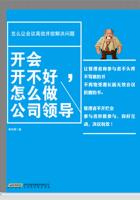Because the least amount of labor is needed to produce them, and, consequently, they have the lowest price. Why does the minimum price determine the maximum consumption? Is it by any chance because of the absolute utility of these objects, their intrinsic utility, their utility insomuch as they correspond, in the most useful manner, in the needs of the worker as a man, and not to the man as a worker? No, it is because in a society founded on poverty the poorest products have the fatal prerogative of being used by the greatest number.
To say now that because the least costly things are in greater use, they must be of greater utility, is saying that the wide use of spirits, because of their low cost of production, is the most conclusive proof of their utility; it is telling the proletarian that potatoes are more wholesome for him than meat; it is accepting the present state of affairs; it is, in short, making an apology, with M. Proudhon, for a society without understanding it.
In a future society, in which class antagonism will have ceased, in which there will no longer be any classes, use will no longer be determined by the minimum time of production; but the time of production devoted to different articles will be determined by the degree of their social utility.
To return to M. Proudhon's thesis: the moment the labor time necessary for the production of an article ceases to be the expression of its degree of utility, the exchange value of this same article, determined beforehand by the labor time embodied in it, becomes quite usable to regulate the true relation of supply to demand, that is, the proportional relation in the sense M. Proudhon at the moment attributes to it.
It is not the sale of a given product at the price of its cost of production that constitutes the "proportional relation" of supply to demand, or the proportional quota of this product relatively to the sum total of production; it is the variations in supply and demand that show the producer what amount of a given commodity he must produce in order to receive in exchange at least the cost of production. And as these variations are continually occurring, there is also a continual movement of withdrawl and application of capital in the different branches of industry.
"It is only in consequence of such variations that capital is apportioned precisely, in the requisite abundance and no more, to the production of the different commodities which happen to be in demand. With the rise or fall of price, profits are elevated above, or depressed below their general level, and capital is either encouraged to enter into, or is warned to depart from, the particular employment in which the variation has taken place." --"When we look at the markets of a large town, and observe how regularly they are supplied both with home and foreign commodities, in the quantity in which they are required, under all the circumstances of varying demand, arising from the caprice of taste, or a change in the amount of population, without often producing either the effects of a glut from a too abundant supply, or an enormously high price from the supply being unequal to the demand, we must confess that the principle which apportions capital to each trade in the precise amount that is required, is more active than is generally supposed."(Ricardo, Vol.I, pp.105 and 108)
If M. Proudhon admits that the value of products is determined by labor time, he should equally admit that it is the fluctuating movement alone that in society founded on individual exchanges make labor the measure of value. There is no ready-made constituted "proportional relation", but only a constituting movement.
We have just seen in what sense it is correct to speak of "proportion"as of a consequence of value determined by labor time. We shall see now how this measure by time, called by M. Proudhon the "law of proportion", becomes transformed into a law of disproportion .
Every new invention that enables the production in one hour of that which has hitherto been produced in two hours depreciates all similar products on the market. Competition forces the producer to sell the product of two hours as cheaply as the product of one hour. Competition carries into effect the law according to which the relative value of a product is determined by the labor time needed to produce it. Labor time serving as the measure of marketable value becomes in this way the law of the continual depreciation of labor. We will say more. There will be depreciation not only of the commodities brought into the market, but also of the instruments of production and of whole plants. This fact was already pointed out by Ricardo when he said:
"By constantly increasing the facility of production, we constantly diminish the value of some of the commodities before produced."(Vol.II, p.59)
Sismondi goes further. He sees in this "value constituted" by labor time, the source of all the contradictions of modern industry and commerce.
"Mercantile value," he says, "is always determined in the long run by the quantity of labor needed to obtain the thing evaluated: it is not what it has actually cost, but what it would cost in the future with, perhaps, perfected means; and this quantity, although difficult to evaluate, is always faithfully established by competition....
"It is on this basis that the demand of the seller as well as the supply of the buyer is reckoned. The former will perhaps declare that the thing has cost him 10 days' labor; but if the latter realizes that it can henceforth be produced with eight days' labor, in the event of competition proving this to the two contracting parties, the value will be reduced, and the market price fixed at eight days only. Of course, each of the parties believes that the thing is useful, that it is desired, that without desire there would be no sale; but the fixing of the price has nothing to do with utility."( Etudes, etc. , Vol.II, p.267)














